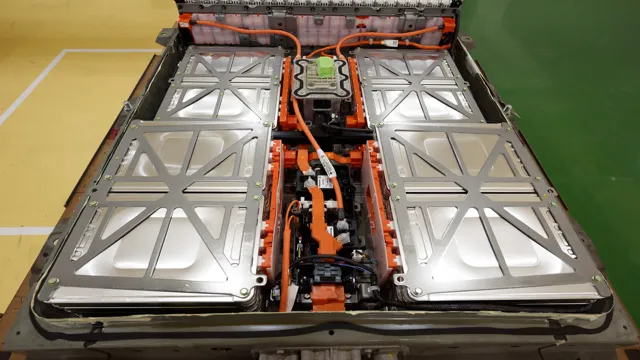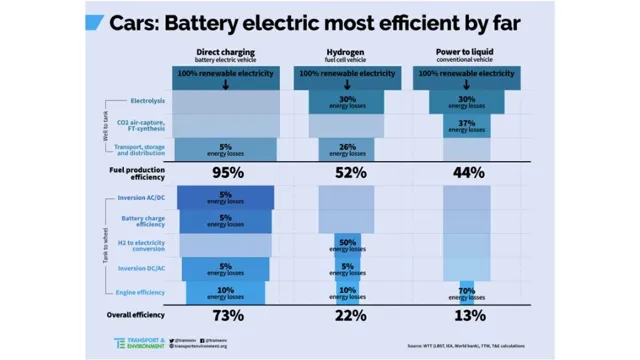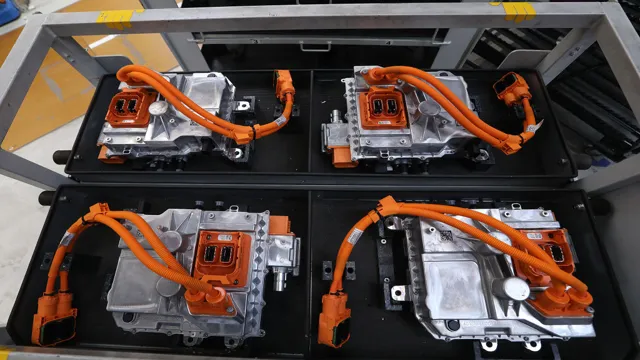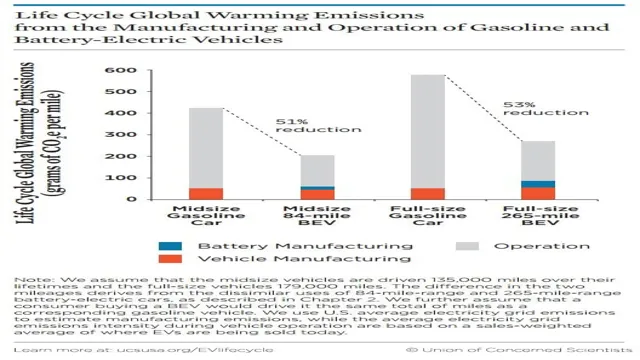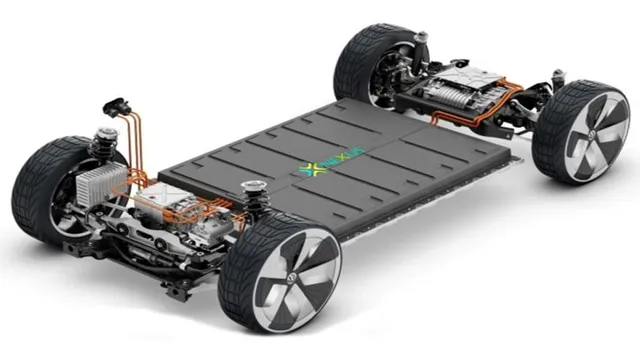The Shocking Truth About Electric Car Battery Cost in NZ: What You Need to Know Before You Go Electric!
Electric cars are becoming increasingly popular in New Zealand, as more and more people look for ways to reduce their carbon footprint and save money on fuel costs. However, one of the major concerns that people have when considering a switch to an electric vehicle is the cost of batteries. After all, batteries are one of the most expensive components of electric cars, and they are the main reason why electric vehicles cost more than their conventional counterparts.
But just how much do electric car batteries cost in New Zealand? And is it worth replacing an old gas-guzzling car with a new electric vehicle? In this blog post, we will explore the cost of electric car batteries in NZ and their impact on the overall cost of owning an electric vehicle.
Average Cost of Electric Car Batteries in NZ
If you’re looking to buy an electric car in New Zealand, one of your biggest concerns might be the cost of the battery. On average, the cost of an electric car battery in New Zealand ranges from $5,000 to $20,000, depending on the make and model of the vehicle. While the cost of batteries has come down significantly in recent years, they are still a major expense when it comes to buying an electric car.
However, it’s important to keep in mind that electric cars are cheaper to run and maintain than traditional gas-powered vehicles. You’ll save money on fuel costs, and electric cars require less maintenance since they have fewer moving parts. Plus, the government offers incentives and subsidies for electric car buyers, which can help offset the initial investment.
So, while the cost of an electric car battery may seem high, it’s important to consider the long-term benefits and savings.
Looking at industry and market data
When it comes to electric cars, one of the most critical factors for consumers is the cost of batteries. In New Zealand, the average cost of an electric car battery is around $15,000, which is undoubtedly a significant investment. However, it’s important to note that these prices are gradually decreasing, thanks to the advancements in technology and increased manufacturing efficiency.
Additionally, the New Zealand government has taken steps to boost the uptake of electric cars, which includes offering rebates and other incentives to encourage people to make the switch. As a result, we can expect to see more affordable electric cars on the market in the coming years, which will help accelerate the transition to a cleaner, more sustainable future. So, if you’re considering buying an electric car in New Zealand, it may be worth doing your research and weighing up the long-term benefits of this investment.
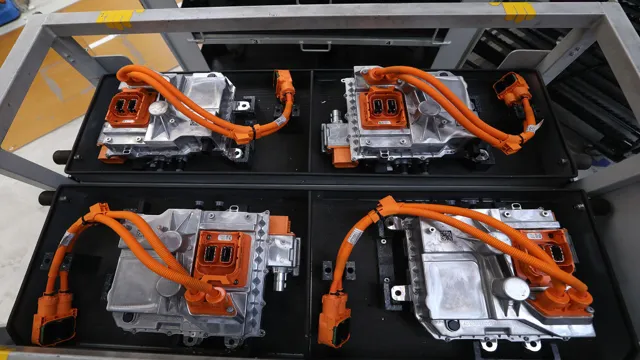
Factors that Affect Electric Car Battery Costs
Electric car battery cost in NZ depends on various factors including the battery type, battery chemistry, and production volume. Lithium-ion batteries, which are currently the most commonly used batteries in electric cars, are more expensive than traditional lead-acid batteries used in gasoline cars. The cost of lithium-ion batteries can vary depending on their chemistry, with newer and more advanced chemistries being more costly.
Additionally, larger production volumes can lead to lower costs due to economies of scale. Other factors that can affect electric car battery costs include research and development costs, materials used in battery production, and government incentives. Despite the initial higher cost of electric car batteries, they are becoming increasingly cost-competitive when compared to the ongoing cost of gasoline or diesel fuel.
With advancements in technology and increased production, it is likely that electric car batteries will continue to decrease in cost over time.
Battery type
When it comes to the cost of electric car batteries, one of the biggest factors to consider is the type of battery used. Most electric cars today use lithium-ion batteries, which offer a good balance of cost, energy density, and lifespan. However, there are other battery types to consider, such as nickel-metal hydride (NiMH) and solid-state batteries, that could provide even better performance and longevity.
The cost of these alternative battery types can be higher than lithium-ion, but as technology advancements continue to be made and production scales up, prices are expected to decrease. Additionally, the specific chemistry and production methods used in a given battery can also impact its cost. Overall, it is important to consider the type and specific details of an electric car battery when evaluating its cost and potential benefits.
Battery capacity
When it comes to electric cars, battery capacity is a crucial factor to consider. This is because the size, energy density, and performance of a battery directly impact the driving range, acceleration, and overall cost of an electric car. The cost of electric car batteries has been decreasing over the years, but it still remains a significant expense for automakers and consumers alike.
The factors that affect the cost of electric car batteries include the type and quality of materials used, manufacturing processes, economies of scale, and research and development costs. Additionally, advancements in technology and improvements in infrastructure for charging and maintenance can also impact the overall cost of electric car batteries. While these factors may seem complex and varied, they all play a role in determining the cost of electric car batteries and, in turn, the affordability and accessibility of electric cars for the general public.
Manufacturer
When it comes to electric car battery costs, there are a variety of factors that can impact the final price tag, especially depending on the manufacturer. Some manufacturers have invested heavily in research and development to create more efficient, long-lasting batteries that can drive up the initial cost. Additionally, certain manufacturers may use higher-quality materials or sophisticated manufacturing processes that contribute to a higher overall cost.
However, it’s important to note that a higher initial cost can often translate to a better overall value when you consider factors like battery life and maintenance costs over time. Ultimately, it’s up to individual consumers to weigh the pros and cons of various electric car models and their battery costs to determine the best option for their needs and budget.
Installation
Installing an electric car battery can be a significant investment, with costs varying depending on several factors. One of the main factors that affect electric car battery costs is the size and capacity of the battery. Larger batteries with higher capacities can provide more mileage, but they also come at a higher cost.
Another factor is the type of battery chemistry used. Lithium-ion batteries are more commonly used in electric vehicles, but they can be more expensive compared to other battery types like lead-acid or nickel-metal hydride. The installation process itself can also affect the cost, with some vehicles requiring more complex installations than others.
It’s important to consider all of these factors when choosing an electric car battery, as they can have a significant impact on the overall cost of ownership. By doing research and comparing different options, drivers can make an informed decision and choose the battery that best fits their needs and budget.
Maintenance
As with any vehicle, maintenance plays a critical role in the lifespan of an electric car’s battery. Failing to properly care for your electric car battery can lead to additional costs associated with premature replacement. Factors that affect electric car battery costs include things like driving habits, charging patterns, and environmental conditions.
Heavy use of an electric vehicle can cause the battery’s capacity to diminish more quickly than expected, which increases the likelihood of needing a replacement sooner. On the other hand, charging patterns can also have an impact on the battery’s longevity. Frequent fast charges can lead to increased wear and tear on the battery, whereas charging at a slower rate can help prolong its lifespan.
Additionally, environmental factors such as extreme weather conditions can also take a toll on the battery’s health. It’s important to stay on top of routine maintenance with your electric car’s battery to avoid unexpected costs down the road.
How to Save Money on Electric Car Batteries
Electric car battery cost in NZ can be a significant expense, but there are ways to save money without sacrificing quality. One option is to consider buying a used or refurbished electric car battery. Many companies offer these types of batteries at a much lower cost than brand new ones.
Another option is to look for incentives or rebates offered by the government or electric car manufacturers. These programs can provide significant savings on the initial cost of the battery and can help offset the ongoing cost of ownership. It’s also essential to perform regular maintenance on the battery, such as keeping it charged and avoiding extreme temperatures, to extend its lifespan and save money in the long run.
Ultimately, the key to saving money on electric car batteries is to do your research and shop around for the best options and deals.
Buy secondhand batteries
Buying secondhand batteries can be a smart way to save money on electric car batteries. Sure, brand new batteries might come with a warranty and the peace of mind of knowing they haven’t been used before, but they can also come at a high price tag. Secondhand batteries, on the other hand, can be a fraction of the cost.
And with advancements in battery technology, many used batteries still have plenty of life left in them. Of course, it’s important to do your research and make sure you’re buying from a reputable source. But for those willing to put in the extra effort, buying used batteries can be a great way to keep costs down and make EV ownership more accessible.
By buying secondhand batteries, you can save money and help reduce waste.
Compare prices from different sellers
When it comes to buying an electric car battery, one of the easiest ways to save money is to compare prices from multiple sellers. With so many different options out there, it can be overwhelming to know where to start. However, by taking the time to shop around and look at different prices, you’ll be able to find the best deal for your needs.
Keep in mind that the lowest price isn’t always the best option, as you’ll want to consider factors such as warranty, customer service, and overall quality. Additionally, don’t be afraid to negotiate with sellers to try and get the best possible price. By doing your research and being savvy with your purchases, you can save a significant amount of money on your electric car battery.
Consider leasing or financing options
One way to save money on electric car batteries is to consider leasing or financing options. Many car manufacturers offer financing deals with low or even zero percent APR, making it easier to afford an electric vehicle and its battery. Leasing can also reduce monthly costs since you only pay for the car’s depreciation and not its full cost.
Plus, leasing allows you to upgrade to a new electric car with newer and better battery technology every few years. Before deciding to lease or finance an electric car, make sure to do your research and compare the costs to see if it’s a financially feasible option for your situation. If you decide to lease or finance, be sure to negotiate the terms and ask if there are any incentives or discounts available.
By leasing or financing, you can save money upfront and potentially have access to better and more advanced battery technology in the future.
Conclusion
In conclusion, the cost of electric car batteries in NZ may seem shocking at first, but it’s important to remember that as technology advances and economies of scale kick in, these costs will continue to decrease. Plus, when you consider the long-term savings on fuel and maintenance costs, investing in an electric car may just be the jolt your bank account needs.”
FAQs
What is the average cost of an electric car battery in New Zealand?
The average cost of an electric car battery in New Zealand can range from $5,000 to $20,000 depending on the make and model of the vehicle.
How long does an electric car battery typically last in New Zealand?
Electric car batteries typically last around 8-10 years or 100,000-200,000 km in New Zealand.
Are there any government subsidies available for purchasing an electric car battery in New Zealand?
Yes, the New Zealand government offers a subsidy of up to $8,625 for purchasing an electric car, which can be put towards the cost of a battery.
Can electric car batteries be recycled in New Zealand?
Yes, electric car batteries can be recycled in New Zealand. There are several recycling plants that specialize in recycling lithium-ion batteries, which are commonly used in electric cars.
